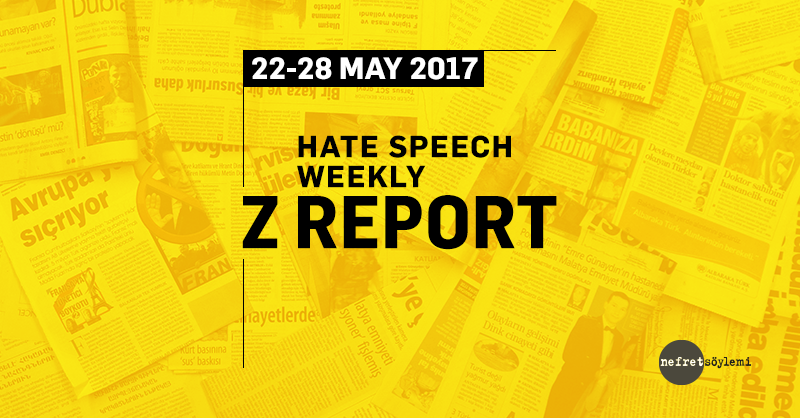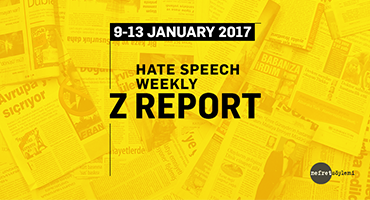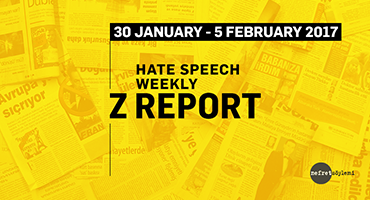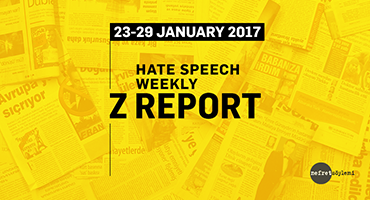Within May 22-28, 2017, four news articles that generate hate speech had been selected from print media for the weekly report. You can find these articles that generate hate speech against Syrians, Greeks, Cyriot Greeks and Armenians and the analyses below.1
1.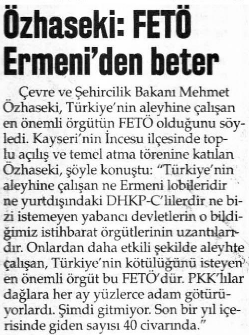
In the article that was published in Yeni Akit titled “Özhaseki: FETÖ is worse than the Armenian”, the expressions of the Minister of Environment and Urbanization, Mehmet Haseki, which incites enmity towards Armenians, are highlighted via being given in the title. The newspaper, therefore, accepts and extends the expressions which see the Armenian national identity itself as a threat and hostility. |
2.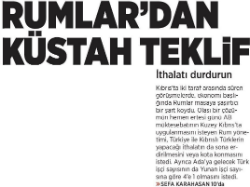
In the title of Milliyet’s article, “INSOLENT OFFER FROM CYPRIOT GREEKS”, all Cypriot Greek people are held responsible for an event in which the Greek Cypriot Administration of Southern Cyrpus is the actor. The article, therefore, insults Cypriot Greeks and exacerbates the existing enmity against them. |
3.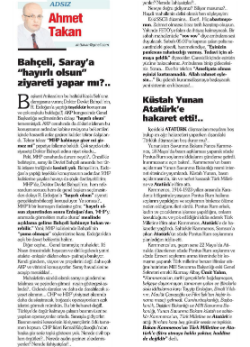
Alongside choosing a title as “Insolent Greek Insulted Atatürk”, Ahmet Takan uses expressions as “Insolent Greek spilled out hatred against Atatürk and Turkish nation in the press briefing” in his article. He highlights the Greek national identity through the personality of the Minister of National Defence of Greece, therefore, insults Greeks, exacerbates the existing prejudices against them and incites enmity between people. |
4.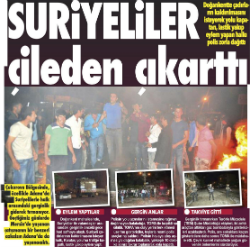
The article published in Adana Toros titled “SYRIANS enraged” is about a protest made by a group of locals in Adana who demanded the removal of the tents which Syrians were living in. The newspaper, however, holds Syrians responsible for the event in the title, hence legitimizes discrimination and incites hatred against Syrian people. |
1. Within the scope of the media monitoring work focusing on hate speech, all national newspapers and around 500 local newspapers are monitored based on pre-determined keywords (e.g. Traitor, apostate, refugee, Christian, Jewish, separatist, etc.) via the media monitoring center. While the main focus has been hate speech on the basis of national, ethnic and religious identities; sexist and homophobic discourses are also examined as part of the monitoring work.

